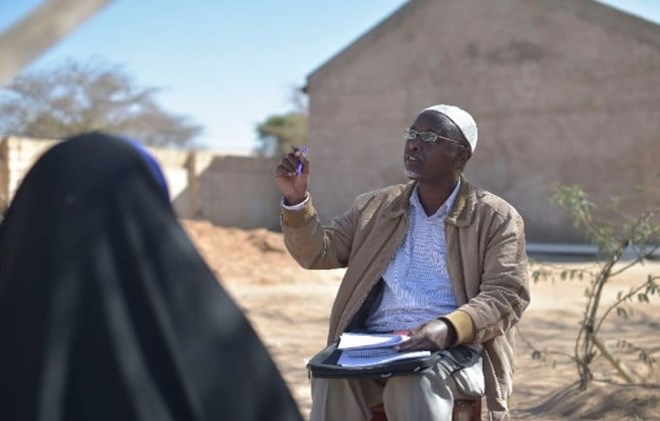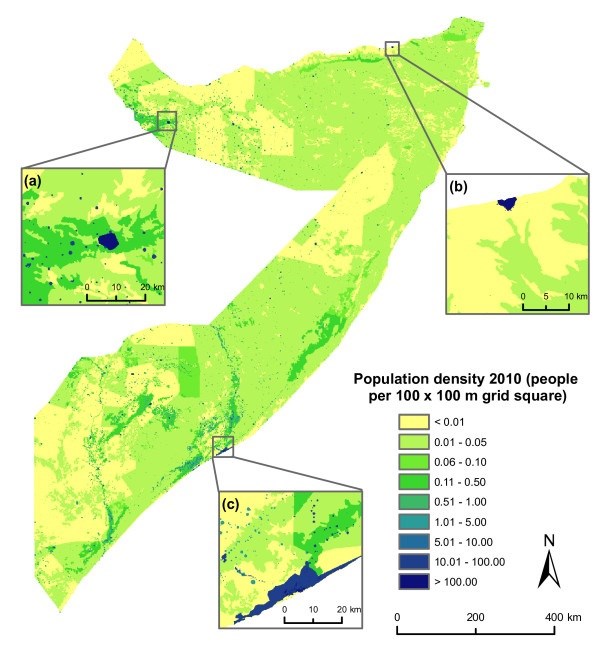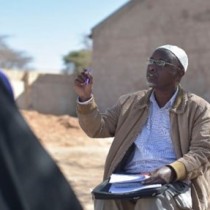
Somalia launches first census in nearly 50 years
.


FILE - A data collector from the Somali Health ad Demographic Survey (SHDS). March 20, 2022. CREDIT: UNFPA
SOURSCE:-VOA

By Harun Maruf

FILE - A data collector from the Somali Health ad Demographic Survey (SHDS). March 20, 2022. CREDIT: UNFPA
The Somali government has launched its first national population and housing census in decades, which is expected to take two years.
"We will be counting those who live in the Somali territory and the houses they live in," Dr. Abdi Ali Ige, head of the Somali Population and Housing Census, told VOA's Somali Service Tuesday.
Ige, who will be overseeing the project, said the data collectors will be following a standard methodology used internationally to conduct the count.
"We are using combination of de facto and de jure methodology. That means we are counting population we find on the day of the counting," he said. "[For] the nomadic population and the homeless, we are using de jure methodology. That means we are asking people where they usually live — it's combination of two methodologies because Somalis have different population strata."
30,000 data collectors
Ige said the census will start in the urban population then move to the rural and nomadic populations.
"Before the count is conducted, there will be mapping of the country using satellite imagery of towns and cities, villages, and rural areas," he said.
He said mapping will take about eight months. There will also be training for the 30,000 data collectors before the counting starts in October 2024.
"The census will be concluded from two weeks to one month … every house will be knocked," he said.
1.4 million displaced
The United Nations estimates that 1.4 million Somalis have been displaced by the current droughts. Ige said the census team is aware of the population movement and it will be targeting the temporary nomadic settlements using satellite imagery.
"Every village or district has a temporary nomadic settlement," he said, explaining that the timing of the census will coincide with autumn rains, when nomadic communities return to their places of origin.


Somalia last conducted a formal census in 1975, which recorded a total population of 4.2 million, Ige said. He said a second census took place in 1984 but was not published. Since that time, population figures given by Somali and United Nations officials estimate Somalis to number between 12 and 16 million.
The United Nations Population Fund, which is supporting the Somali government census, also expressed confidence in the project during the launch in Mogadishu.
"We are going to be delivering a modern census for Somalia through modern technology," says Niyi Ojuolape, UNFPA country representative.
"We plan to have modern data security; we are also going to be processing the data that we will be using through the latest technology."
Ojuolape said the team that is conducting the census is made of both UNFPA and the Somali national bureau of statistics; and includes demographers, statisticians, GIS (geographic information system) analysis, IT and communications specialists.
Ige said consultations have been made with the federal states and Somaliland about conducting the census.
But officials expect challenges, particularly in areas controlled by al-Shabab militants. Ojuolape says officials will be using technology to conduct census mapping and get estimates of the people living in those areas.
"There are certain places that may be difficult for us to reach and we will need satellite imagery to help us to get those figures," he said.
"In addition, satellite imagery will also help us to validate whatever figures we get at the end of the day because the two must work together."
Data will help government plan
Ige said the Somali government told the team that so-called inaccessible areas will be free by October next year.
"But we have a plan used in Nigeria, Burkina Faso, Mali and Colombia. We have a model, which is satellite imaging known as Grid 3, which we will use if we are unable to reach a place," he said.
Officials described the census as a critical exercise that will allow the Somali government to plan and implement policies and programs that meet the needs of its citizens.
"Generation of data and utilization of data is at the heart of governance," said Salah Jama, the deputy prime minister of Somalia, who launched the census.
"It is paramount for good government. It is paramount for development gains."
If concluded successfully, the census will also come ahead of the 2026 elections. Somali President Hassan Sheikh Mohamud promised to prepare direct elections in a televised Mogadishu town hall Monday night.
Assuring the citizens that their information will be kept confidential and used only for statistical purposes, the government urged citizens to participate in the census and provide accurate information.



 0
0 






Somalia launches first census in nearly 50 years
.